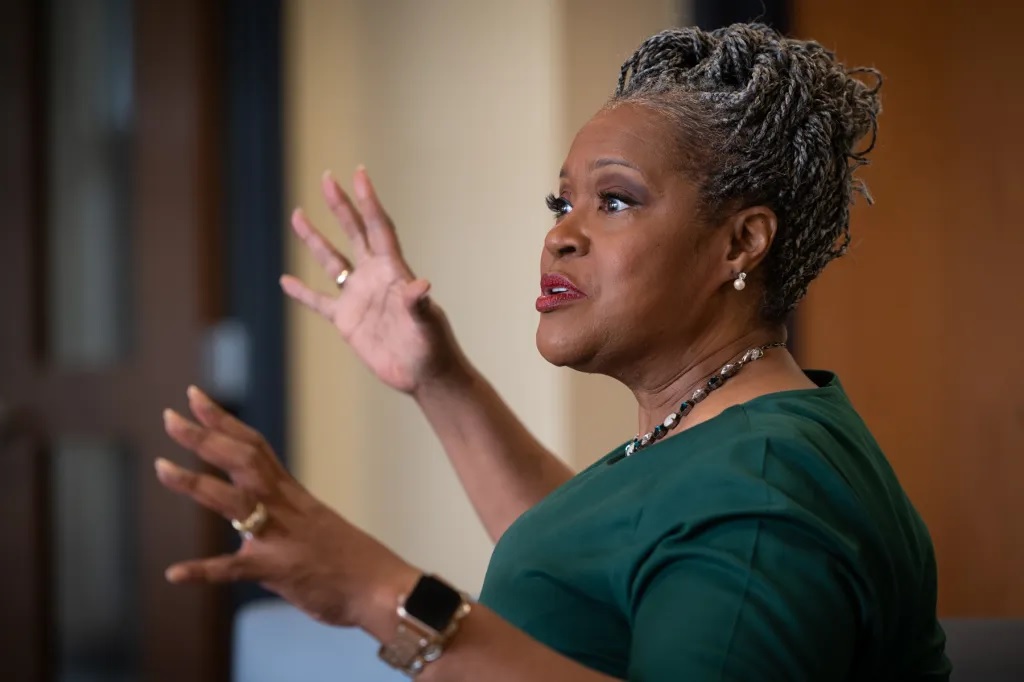Kathy Humphrey, president of Carlow, speaks to PublicSource during an interview in October 2022. (Photo by Stephanie Strasburg/PublicSource)
Private colleges abound in Pittsburgh, a city rebranded around the promise of “eds and meds.” But demographic trends, skepticism in the value of a degree and competition from other institutions spell fears for their future.
by Emma Folts, PublicSource
At Carlow University, administrators, faculty and staff no longer get raises at the start of the fiscal year. The university waits until enrollment numbers are finalized for the academic year, and if enough students showed up, doles them out.
“Our raises come because the students are successful,” President Kathy Humphrey said in an interview. “Everybody waits with bated breath – ‘Did we make our number?’ When you’ve got everybody pulling in that direction, it makes a dramatic difference.”
The university added this incentive after Humphrey took over more than two years ago. Since then, Carlow appears to have stemmed its declining enrollment. The university saw a meaningful increase from fall 2021 to fall 2023, according to officials. But for years, employees at Carlow likely wouldn’t have earned raises under this model – and if other small, private universities in Allegheny County took the same approach, theirs wouldn’t have, either.
The majority of these institutions have seen significant enrollment declines in roughly the last decade, and they depend on tuition revenue to balance their budget.
Between fall 2011 and fall 2021, enrollment fell by about 17% at Carlow, 16% at Duquesne University and about 9% at Point Park University, according to the most recent data available from the U.S. Department of Education. But Carlow and Point Park, using internal numbers, calculate declines of about 15% and 11%, respectively.
While enrollment at smaller universities like these across the U.S. largely held steady over the last decade, the Pittsburgh universities aren’t the only private institutions grappling with shrinking student bodies.
Persistent declines could bring cuts to academic programs, layoffs or, in rare cases, closures, as the fates of other universities in the country show. The local declines could soon worsen as a reduction in births during and after the Great Recession of 2008 is projected to play out more acutely in Pennsylvania, setting up a steep drop in the traditional college-going population by the end of the decade.

